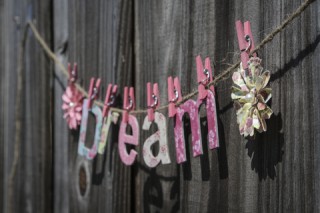Why research is important to narratives?
Creatives research in order to be able to develop their work, to create worlds they have not experienced, and to avoid actually creating something!. Research, and particularly interviewing people, generates the raw material from which you can create characters, plots, moods, images and whole narratives. However , it goes beyond this to making you feel secure in describing your dramatic world, inspiring new narrative elements.
It enables you to take an idea and develop it, when being lost in a fog of uncertainty may kill it.
Research addresses common development problems
Talk to an experienced editor and they will tell you that one of the most common problems with scripts, screenplays, manuscripts, even rough cuts is they are simply too thin. There is insufficient detail to make the world of the narrative particular and unique, or in some cases even make sense. Working on these projects gives you the feeling that you have seen these characters, situations and narratives before.
Many writers have been told to write what they know i.e. from their own experience. This approach in all forms of creativity often generates works which are often, all inspiration, and some perspiration, but little, if anything, comes from research. The trouble with inspiration is that it draws on what you already know – your life and the narratives you have seen/read/experienced. You own life is probably insufficiently dramatic and interesting to alone make a narrative, while the works you have experienced are probably familiar to others too. The result is that, with nothing new to inform the characterisation and stories, the resulting narrative ends up being either mundane or unbelievable. (See the blog Sources of Inspiration – for other ways in which to start a project).
A Simple Solution
A simple solution to this problem is research. However, there is also a danger. You need to avoid an over reliance on research. In this scenario the narrative is swamped with interesting information, it captures reality well, it contains plenty of realistic incidents and presents a believable world but… there isn’t any drama.
This type of narrative has no thrust and no heart. It either is or feels like an collection of interesting facts and real people. This is a common in screenplays written by journalists or people who have a documentary background, who find it difficult to let the research go. It is also the major reason most biographical films fail.
Despite the risk of this being a problem, research is undoubtedly the best way to enhance and develop any idea.
Research as a cure for writer’s block

Writer’s block can take many forms but in essence it is about not being able to move forward because you do not know what to write next. Research provides you with options when struggling to solve a plot, character or any narrative problem. It also often provides the telling detail, which makes scenes distinctive.
The objectives of research
Setting out your research objectives – what you need to find out – before you start researching will stop the process going on forever and you becoming absorbed in interesting but ultimately irrelevant material. This is the real danger of research, but sometimes is the inspiration for the second and third projects.
What types of things might you hope to achieve through research? The options are fairly obvious.
- Specific information, e.g.when something happened or how something is achieved.
- Character information, e.g. lifestyle, careers, anecdotal stories, backstory and family context.
- The context of your idea, e.g. its historical period, contemporary value systems, economic and political circumstances and societal concerns.
- Contemporary genre expectations.
The first and third of these options are often satisfied by paper and internet research. The Web is the best tool for research so far invented in this regard.
The second option is best achieved through interviews, unpublished material or oral history archives.
The key question is what do you want to achieve with your research?
How will it help with the development of your current idea? What are the narrative questions you are seeking to answer? Once you have some answers to these questions you can start the serious process of research, and not just passing time enjoying the pleasures of discovery and curiosity – wonderful though these are.

